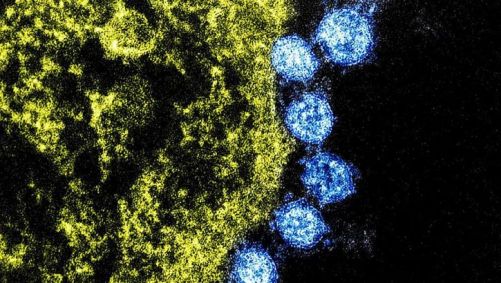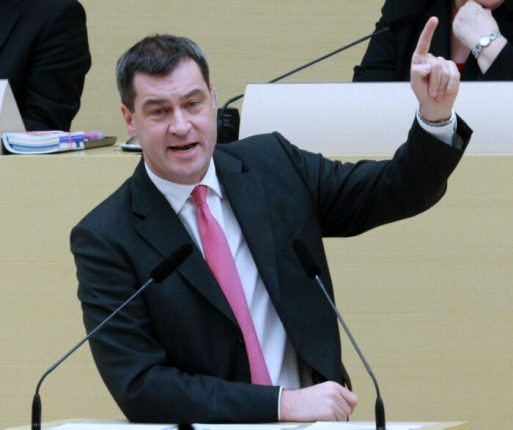March 27, 2020
Dr. Fauci and COVID-19 Priorities: Therapeutics Now or Vaccines Later?

By Lyn Redwood, RN, MSN, President; Mary Holland, CHD General Counsel & Vice Chair; and the CHD Team
The rapidity with which normal life has ground to a halt as a result of coronavirus-related edicts has stunned citizens around the world, generating massive social and economic upheaval. Meanwhile, media coverage of COVID-19 has whipped up unprecedented levels of public anxiety and fear, laying the psychological groundwork for people to eagerly embrace “magic bullet” medical solutions, no matter how experimental. In the U.S., the World Health Organization (WHO) is now compounding the domestic panic, warning that America could become the new coronavirus “epicenter.”
Across the country, a debate is raging about the nation’s medical response and how best to apportion available resources. Many argue, quite reasonably, for the importance of identifying safe, effective and affordable therapies that can provide immediate help to those who are sick. On March 22, The New York Times reported that there are at least 69 existing drugs or compounds that might be effective in treating the coronavirus. In China, researchers are studying intravenous vitamin C as a potential nontoxic treatment, while a paper published by French researchers on March 20 described promising COVID-19 results from the off-label use of hydroxychloroquine (an antimalarial) and azithromycin (an antibiotic).
… investments tend to go toward treatments that are sexy and new and patentable rather than to tried-and-true, classical sort of methods repurposing drugs and strategies that have already been shown to work.
The head of the French team, Didier Raoult, MD, PhD, is one of the world’s top infectious disease and virology experts, with roughly 2,000 peer-reviewed publications and multiple awards to his name. Raoult and coauthors point out that a major advantage of “repositioning” older drugs for this coronavirus is that their safety profile, side effects, dosing and drug interactions are already well documented. However, Ian Lipkin, MD, of Columbia University recently told MSNBC, with a grin, that investments tend to go toward treatments that are “sexy and new and patentable” rather than to “tried-and-true, classical sort of methods repurposing drugs and strategies that have already been shown to work.”
Fauci is a stalwart enthusiast of patentable vaccines, skilled in attracting massive government funding for vaccines that either never materialize or are spectacularly ineffective or unsafe.
For example, Fauci once shilled for the fast-tracked H1N1 influenza (“swine flu”) vaccine on YouTube, reassuring viewers in 2009 that serious adverse events were “very, very, very rare.” Shortly thereafter, the vaccine went on to wreak havoc in multiple countries, increasing miscarriage risks in pregnant women in the U.S., provoking a spike in adolescent narcolepsy in Scandinavia and causing febrile convulsions in one in every 110 vaccinated children in Australia—prompting the latter to suspend its influenza vaccination program in under-fives.
Fauci is predictably shining a spotlight on risky and uncertain coronavirus vaccines that may not be available for two years, rather than prioritizing the short-term therapies that patients need right now.
In 2010, then-Senator and physician Tom Coburn, MD, called out Fauci for misleadingly touting “significant progress in HIV vaccine research.” Coburn stated , “The study [Fauci] referred to was a clinical trial in Thailand finding a vaccine to be 31% effective at preventing HIV infection. Unfortunately, the results of this study have been found to be statistically insignificant and the findings of the study have received much skepticism. [. . .] Most scientists involved in AIDS research believe that an HIV vaccine is further away than ever . . . and may never be possible. . . .” Senator Coburn also noted that Fauci’s agency had spent over $5.2 million over a four-year period on lavish “HIV vaccine awareness” events.
Without the least hint of embarrassment, however, Fauci reappeared on YouTube in 2016 to once again push his HIV vaccine agenda, even citing the unimpressive Thailand trial. Fauci’s mobilization of billions for a never-completed Zika vaccine followed a similar playbook. And now, Fauci is predictably shining a spotlight on risky and uncertain coronavirus vaccines that may not be available for two years, rather than prioritizing the short-term therapies that patients need right now.
… researchers at Harvard and other medical sciences institutions have issued warnings about the vaccines’ propensity to produce higher rates of side effects, including local and systemic inflammation and worrisome autoimmune responses.
…researchers recommend taking precautions during preclinical studies and clinical trials. Fauci, on the other hand, praises the “new era of vaccinology”
The vaccine, which bears the ho-hum name of mRNA-1273, uses an unproven mRNA technology platform. mRNA vaccines appeal to industry because of the potential for “rapid, inexpensive and scalable manufacturing,” but researchers at Harvard and other medical sciences institutions have issued warnings about the vaccines’ propensity to produce higher rates of side effects, including local and systemic inflammation and worrisome autoimmune responses. Noting that the “non-native modified nucleotides” used in mRNA vaccines and components of mRNA vaccines’ delivery systems have potentially toxic effects, these researchers recommend taking precautions during preclinical studies and clinical trials. Fauci, on the other hand, praises the “new era of vaccinology”—of which the mRNA-1273 effort is a part—celebrating its use of “atomic level structural information for vaccine design, gene-based vaccine platforms, modern protein engineering and potent adjuvants.”
On March 16, NIAID launched a Phase 1 trial of mRNA-1273 in 45 healthy adults after making the decision—deemed “morally questionable” by some—to sidestep the standard process for vaccine development. That process ordinarily requires “that a manufacturer show a product is safe [in animal models] before it goes into people.” Leading virologist Shibo Jiang, MD, PhD, recently condemned this “quick-fix” approach, arguing that “safety always comes first” and that it is important not to “cut corners” by skipping animal studies. Moderna’s chief medical officer disagrees, saying, “I don’t think proving this in an animal model is on the critical path to getting this to a clinical trial.” For his part, Fauci has expressed willingness to expedite the vaccine’s approval process as soon as NIAID deems the Phase 1 trial successful.
When Hotez observed this immune pathology in his coronavirus laboratory animals, he thought, ‘Oh my God, this is going to be problematic.’
Peter Hotez, MD, PhD, Dean of the National School of Tropical Medicine at Baylor College of Medicine, is no stranger to coronaviruses, having developed a vaccine for an earlier coronavirus in 2016 that stopped just short of commercial development. Despite having “tried like heck” to obtain funding to move his vaccine into clinical trials, Hotez just told a U.S. Congressional Committee (on March 5 ) that coronavirus vaccines are scientifically challenging and have a “unique potential safety problem,” namely a “kind of paradoxical immune enhancement phenomenon.” When Hotez observed this immune pathology in his coronavirus laboratory animals, he thought, “Oh my God, this is going to be problematic.”
Offit expressed worry about the push to ‘rush [a vaccine] through,’ particularly in the absence of ‘any history of making a coronavirus vaccine.’
Paul Offit, MD, of the Children’s Hospital of Philadelphia, another media darling who has profited handsomely from his insider status, stated in a March 10 YouTube interview that influenza deaths are “far worse” than COVID-19 deaths, “yet we don’t quarantine for influenza, we don’t shut down schools for influenza, we don’t cancel meetings for influenza, we don’t cancel schools and churches and synagogues.” Also Offit expressed worry about the push to “rush [a vaccine] through,” particularly in the absence of “any history of making a coronavirus vaccine.” Offit concluded:
Clues that pharma is embracing the opportunities furnished by the COVID-19 crisis come from the financial markets. Market reports indicate that the health care industry has been able to “withstand” the wider stock market plunge due to big gains by pharmaceutical, biotech and medical diagnostic companies involved in developing coronavirus-related products. After Moderna announced, in late February, that it had shipped off its mRNA-1273 to NIAID for the Phase 1 trial, the company instantly became “one of the hottest biotech stocks on the market.” (Moderna’s NASDAQ ticker symbol is, handily enough, MRNA.) Investment advisors have pointed out that the likely promotion of mRNA-1273 as prevention is a “big deal” that stands to make Moderna a fortune, because “millions” of uninfected people will want to “pre-emptively protect themselves.”
Coronavirus drug and vaccine manufacturers are also sitting pretty because of liability immunity conferred under the 2005 PREP Act (Public Readiness and Emergency Preparedness Act) and a follow-up Department of Health and Human Services (HHS) Declaration specific to COVID-19 published in the Federal Register on February 4, 2020. The PREP Act protects the manufacturers of medical “countermeasures”—including vaccines, medications, medical devices and other products—from the risk of damages in the event of a declared public health emergency such as the currently declared coronavirus pandemic.
…it [PREP Act] could ‘be used to allow manufacturers of virtually any drug or vaccine to escape responsibility for gross negligence or even criminal acts.’
The tort immunity described under the COVID-19 Declaration pertains to “any claim of loss caused by, arising out of, relating to, or resulting from the manufacture, distribution, administration, or use of medical countermeasures . . . except for claims involving ‘willful misconduct’ as defined in the PREP Act.” The authors of a legal blog point out that while the new HHS declaration “is couched in a lot of administrative word salad,” the “prime takeaway is that the scope of tort immunity being conferred . . . is quite broad.”
In fact, the PREP Act became law over significant consumer and congressional opposition. Senator Ted Kennedy and 20 colleagues in Congress wrote a letter to the Speaker of the House and Majority Leader to repeal the Act, characterizing it as “a travesty of the legislative process” and stating that it could “be used to allow manufacturers of virtually any drug or vaccine to escape responsibility for gross negligence or even criminal acts.” The dissenting lawmakers also accused the Act’s sponsors of creating “an empty shell of a compensation program for injured patients with none of the funding needed to make compensation a reality.”
The government must not allow Big Pharma and biotech companies to cash in on this catastrophe with speculative, patentable vaccines at the expense of the therapeutics needed to save lives now.
For the moment, our government is prioritizing vaccine development (with the enticing promise of lucrative patents) over existing therapeutics (such as vitamin C and already-FDA-approved drugs) that do not offer comparable financial windfalls. In light of the immunity from liability guaranteed by the PREP Act during declared emergencies, fast-tracked vaccines are a sweetheart deal for both biopharma and government. A safer and common-sense approach would direct resources toward examining the merits of existing therapeutics that can be put to immediate use. The government must not allow Big Pharma and biotech companies to cash in on this catastrophe with speculative, patentable vaccines at the expense of the therapeutics needed to save lives now.
https://youtu.be/xCnOqwvPivE
https://childrenshealthdefense.org/news/dr-fauci-and-covid-19-priorities-therapeutics-now-or-vaccines-later/?utm_source=mailchimp
Thanks to: https://childrenshealthdefense.org
Dr. Fauci and COVID-19 Priorities: Therapeutics Now or Vaccines Later?

By Lyn Redwood, RN, MSN, President; Mary Holland, CHD General Counsel & Vice Chair; and the CHD Team
The rapidity with which normal life has ground to a halt as a result of coronavirus-related edicts has stunned citizens around the world, generating massive social and economic upheaval. Meanwhile, media coverage of COVID-19 has whipped up unprecedented levels of public anxiety and fear, laying the psychological groundwork for people to eagerly embrace “magic bullet” medical solutions, no matter how experimental. In the U.S., the World Health Organization (WHO) is now compounding the domestic panic, warning that America could become the new coronavirus “epicenter.”
Across the country, a debate is raging about the nation’s medical response and how best to apportion available resources. Many argue, quite reasonably, for the importance of identifying safe, effective and affordable therapies that can provide immediate help to those who are sick. On March 22, The New York Times reported that there are at least 69 existing drugs or compounds that might be effective in treating the coronavirus. In China, researchers are studying intravenous vitamin C as a potential nontoxic treatment, while a paper published by French researchers on March 20 described promising COVID-19 results from the off-label use of hydroxychloroquine (an antimalarial) and azithromycin (an antibiotic).
… investments tend to go toward treatments that are sexy and new and patentable rather than to tried-and-true, classical sort of methods repurposing drugs and strategies that have already been shown to work.
The head of the French team, Didier Raoult, MD, PhD, is one of the world’s top infectious disease and virology experts, with roughly 2,000 peer-reviewed publications and multiple awards to his name. Raoult and coauthors point out that a major advantage of “repositioning” older drugs for this coronavirus is that their safety profile, side effects, dosing and drug interactions are already well documented. However, Ian Lipkin, MD, of Columbia University recently told MSNBC, with a grin, that investments tend to go toward treatments that are “sexy and new and patentable” rather than to “tried-and-true, classical sort of methods repurposing drugs and strategies that have already been shown to work.”
Fauci is a stalwart enthusiast of patentable vaccines, skilled in attracting massive government funding for vaccines that either never materialize or are spectacularly ineffective or unsafe.
Fauci’s tired rhetoric
For biopharma companies that are poised to profit from COVID-19-related misfortune, older drugs that have outlived their patent terms are not terribly helpful for the bottom line. Could this be why leading White House coronavirus advisor Anthony Fauci, MD, long-time head of the National Institute of Allergy and Infectious Diseases (NIAID), recently pooh-poohed the published chloroquine evidence as merely “anecdotal”? Fauci is a stalwart enthusiast of “patentable” vaccines, skilled in attracting massive government funding for vaccines that either never materialize or are spectacularly ineffective or unsafe.For example, Fauci once shilled for the fast-tracked H1N1 influenza (“swine flu”) vaccine on YouTube, reassuring viewers in 2009 that serious adverse events were “very, very, very rare.” Shortly thereafter, the vaccine went on to wreak havoc in multiple countries, increasing miscarriage risks in pregnant women in the U.S., provoking a spike in adolescent narcolepsy in Scandinavia and causing febrile convulsions in one in every 110 vaccinated children in Australia—prompting the latter to suspend its influenza vaccination program in under-fives.
Fauci is predictably shining a spotlight on risky and uncertain coronavirus vaccines that may not be available for two years, rather than prioritizing the short-term therapies that patients need right now.
In 2010, then-Senator and physician Tom Coburn, MD, called out Fauci for misleadingly touting “significant progress in HIV vaccine research.” Coburn stated , “The study [Fauci] referred to was a clinical trial in Thailand finding a vaccine to be 31% effective at preventing HIV infection. Unfortunately, the results of this study have been found to be statistically insignificant and the findings of the study have received much skepticism. [. . .] Most scientists involved in AIDS research believe that an HIV vaccine is further away than ever . . . and may never be possible. . . .” Senator Coburn also noted that Fauci’s agency had spent over $5.2 million over a four-year period on lavish “HIV vaccine awareness” events.
Without the least hint of embarrassment, however, Fauci reappeared on YouTube in 2016 to once again push his HIV vaccine agenda, even citing the unimpressive Thailand trial. Fauci’s mobilization of billions for a never-completed Zika vaccine followed a similar playbook. And now, Fauci is predictably shining a spotlight on risky and uncertain coronavirus vaccines that may not be available for two years, rather than prioritizing the short-term therapies that patients need right now.
… researchers at Harvard and other medical sciences institutions have issued warnings about the vaccines’ propensity to produce higher rates of side effects, including local and systemic inflammation and worrisome autoimmune responses.
First off the block
According to the WHO, up to 35 COVID-19 vaccines are in the offing, including experimental messenger RNA (mRNA) vaccines and formulations that attach coronavirus to genetically modified measles vaccines. As biopharma companies position themselves to reap blockbuster profits, the first off the block is a vaccine thrown together at record speed by Fauci’s NIAID in collaboration with Massachusetts-based biotech firm Moderna. NIAID and Moderna began developing the vaccine before a single COVID-19 case had appeared in the U.S., completing the first batch of vaccine “within 42 days of the company obtaining genetic information on the coronavirus.”…researchers recommend taking precautions during preclinical studies and clinical trials. Fauci, on the other hand, praises the “new era of vaccinology”
The vaccine, which bears the ho-hum name of mRNA-1273, uses an unproven mRNA technology platform. mRNA vaccines appeal to industry because of the potential for “rapid, inexpensive and scalable manufacturing,” but researchers at Harvard and other medical sciences institutions have issued warnings about the vaccines’ propensity to produce higher rates of side effects, including local and systemic inflammation and worrisome autoimmune responses. Noting that the “non-native modified nucleotides” used in mRNA vaccines and components of mRNA vaccines’ delivery systems have potentially toxic effects, these researchers recommend taking precautions during preclinical studies and clinical trials. Fauci, on the other hand, praises the “new era of vaccinology”—of which the mRNA-1273 effort is a part—celebrating its use of “atomic level structural information for vaccine design, gene-based vaccine platforms, modern protein engineering and potent adjuvants.”
On March 16, NIAID launched a Phase 1 trial of mRNA-1273 in 45 healthy adults after making the decision—deemed “morally questionable” by some—to sidestep the standard process for vaccine development. That process ordinarily requires “that a manufacturer show a product is safe [in animal models] before it goes into people.” Leading virologist Shibo Jiang, MD, PhD, recently condemned this “quick-fix” approach, arguing that “safety always comes first” and that it is important not to “cut corners” by skipping animal studies. Moderna’s chief medical officer disagrees, saying, “I don’t think proving this in an animal model is on the critical path to getting this to a clinical trial.” For his part, Fauci has expressed willingness to expedite the vaccine’s approval process as soon as NIAID deems the Phase 1 trial successful.
When Hotez observed this immune pathology in his coronavirus laboratory animals, he thought, ‘Oh my God, this is going to be problematic.’
Vaccine-hesitant experts
Ordinarily, vaccine scientists line up in lockstep to pledge their allegiance to the Faucian worldview that vaccination is the “mainstay” of prevention and offers the primary solution for challenges such as the coronavirus situation. In an interesting turn of events, however, some of the pharma-funded media’s favorite vaccine spokesmen—slick, high-level medical professionals that manufacturers ordinarily can count on to endorse any vaccine—are urging caution.Peter Hotez, MD, PhD, Dean of the National School of Tropical Medicine at Baylor College of Medicine, is no stranger to coronaviruses, having developed a vaccine for an earlier coronavirus in 2016 that stopped just short of commercial development. Despite having “tried like heck” to obtain funding to move his vaccine into clinical trials, Hotez just told a U.S. Congressional Committee (on March 5 ) that coronavirus vaccines are scientifically challenging and have a “unique potential safety problem,” namely a “kind of paradoxical immune enhancement phenomenon.” When Hotez observed this immune pathology in his coronavirus laboratory animals, he thought, “Oh my God, this is going to be problematic.”
Offit expressed worry about the push to ‘rush [a vaccine] through,’ particularly in the absence of ‘any history of making a coronavirus vaccine.’
Paul Offit, MD, of the Children’s Hospital of Philadelphia, another media darling who has profited handsomely from his insider status, stated in a March 10 YouTube interview that influenza deaths are “far worse” than COVID-19 deaths, “yet we don’t quarantine for influenza, we don’t shut down schools for influenza, we don’t cancel meetings for influenza, we don’t cancel schools and churches and synagogues.” Also Offit expressed worry about the push to “rush [a vaccine] through,” particularly in the absence of “any history of making a coronavirus vaccine.” Offit concluded:
The PREP Act protects the manufacturers of medical ‘countermeasures’—including vaccines, medications, medical devices and other products—from the risk of damages in the event of a declared public health emergency such as the currently declared coronavirus pandemic.And certainly the FDA has got to regulate this product because right now everybody in the United States will probably take it in a second, even if it wasn’t tested.
A profitable crisis
In early March, Congress passed an emergency coronavirus spending bill, much of which will “directly benefit the drug industry.” Legislators who tried—and failed—to include meaningful affordability provisions in the spending bill worry that “A danger remains that the federal government will simply write a blank check signed to big pharma as a result of this crisis.”Clues that pharma is embracing the opportunities furnished by the COVID-19 crisis come from the financial markets. Market reports indicate that the health care industry has been able to “withstand” the wider stock market plunge due to big gains by pharmaceutical, biotech and medical diagnostic companies involved in developing coronavirus-related products. After Moderna announced, in late February, that it had shipped off its mRNA-1273 to NIAID for the Phase 1 trial, the company instantly became “one of the hottest biotech stocks on the market.” (Moderna’s NASDAQ ticker symbol is, handily enough, MRNA.) Investment advisors have pointed out that the likely promotion of mRNA-1273 as prevention is a “big deal” that stands to make Moderna a fortune, because “millions” of uninfected people will want to “pre-emptively protect themselves.”
Coronavirus drug and vaccine manufacturers are also sitting pretty because of liability immunity conferred under the 2005 PREP Act (Public Readiness and Emergency Preparedness Act) and a follow-up Department of Health and Human Services (HHS) Declaration specific to COVID-19 published in the Federal Register on February 4, 2020. The PREP Act protects the manufacturers of medical “countermeasures”—including vaccines, medications, medical devices and other products—from the risk of damages in the event of a declared public health emergency such as the currently declared coronavirus pandemic.
…it [PREP Act] could ‘be used to allow manufacturers of virtually any drug or vaccine to escape responsibility for gross negligence or even criminal acts.’
The tort immunity described under the COVID-19 Declaration pertains to “any claim of loss caused by, arising out of, relating to, or resulting from the manufacture, distribution, administration, or use of medical countermeasures . . . except for claims involving ‘willful misconduct’ as defined in the PREP Act.” The authors of a legal blog point out that while the new HHS declaration “is couched in a lot of administrative word salad,” the “prime takeaway is that the scope of tort immunity being conferred . . . is quite broad.”
In fact, the PREP Act became law over significant consumer and congressional opposition. Senator Ted Kennedy and 20 colleagues in Congress wrote a letter to the Speaker of the House and Majority Leader to repeal the Act, characterizing it as “a travesty of the legislative process” and stating that it could “be used to allow manufacturers of virtually any drug or vaccine to escape responsibility for gross negligence or even criminal acts.” The dissenting lawmakers also accused the Act’s sponsors of creating “an empty shell of a compensation program for injured patients with none of the funding needed to make compensation a reality.”
The government must not allow Big Pharma and biotech companies to cash in on this catastrophe with speculative, patentable vaccines at the expense of the therapeutics needed to save lives now.
Safety first
A look at the response to past influenza and coronavirus epidemics provides little reassurance that safety considerations will come first. In addition to the already mentioned adverse events associated with the 2009 swine flu vaccine, we have witnessed treatments that “may have been harmful” and whistleblower lawsuits against false claims of efficacy.For the moment, our government is prioritizing vaccine development (with the enticing promise of lucrative patents) over existing therapeutics (such as vitamin C and already-FDA-approved drugs) that do not offer comparable financial windfalls. In light of the immunity from liability guaranteed by the PREP Act during declared emergencies, fast-tracked vaccines are a sweetheart deal for both biopharma and government. A safer and common-sense approach would direct resources toward examining the merits of existing therapeutics that can be put to immediate use. The government must not allow Big Pharma and biotech companies to cash in on this catastrophe with speculative, patentable vaccines at the expense of the therapeutics needed to save lives now.
https://youtu.be/xCnOqwvPivE
https://childrenshealthdefense.org/news/dr-fauci-and-covid-19-priorities-therapeutics-now-or-vaccines-later/?utm_source=mailchimp
Thanks to: https://childrenshealthdefense.org






 Sat Mar 23, 2024 11:33 pm by globalturbo
Sat Mar 23, 2024 11:33 pm by globalturbo









